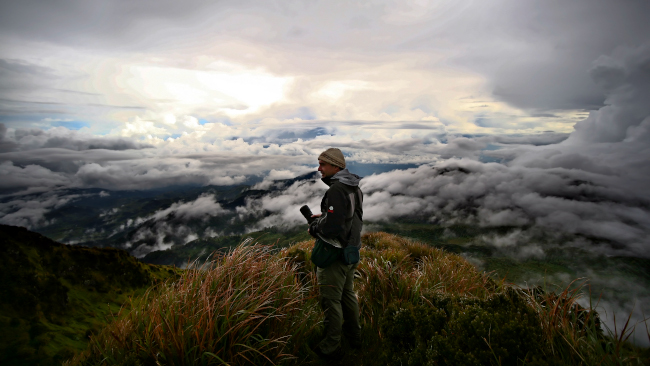The Philippines Builds First Pinoy-Designed MicroSatellite “Diwata-1″ For Launch into Space in April 2016
13 January 2016 – The Philippines’ first-ever microsatellite, Diwata-1, was formally unveiled and received today by the Department of Science and Technology (DOST) and the University of the Philippines-Diliman (UP) at the Tsukuba Space Center in Ibaraki Prefecture, Japan.
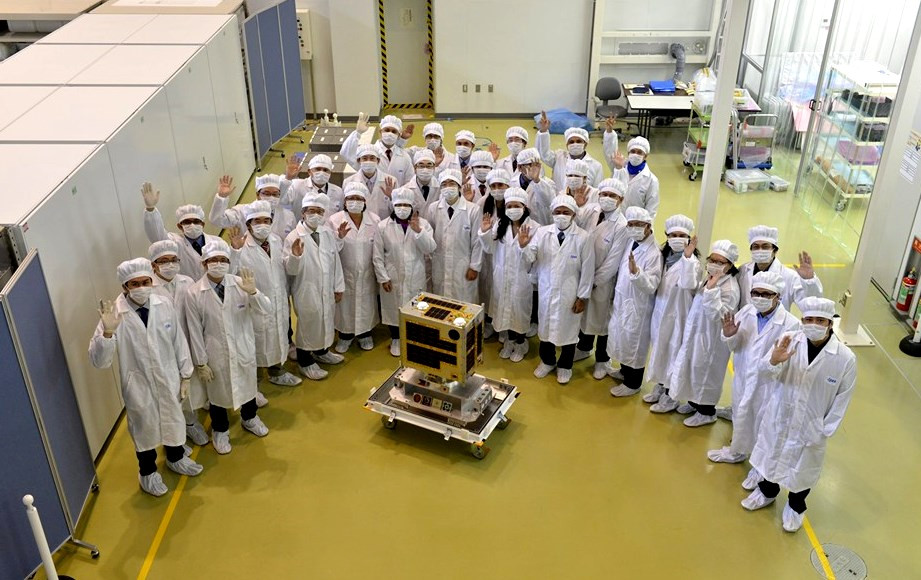 Designed by a team of Filipino engineers and graduate researchers and professors from UP-Diliman, the Hokkaido University and Tohoku University and assembled in Japan, the fully-built PHL-MICROSAT-1 or Diwata-1 was formally turned over to the Japan Aerospace and Exploration Agency (JAXA) for launch into outer space sometime in April 2016.
Designed by a team of Filipino engineers and graduate researchers and professors from UP-Diliman, the Hokkaido University and Tohoku University and assembled in Japan, the fully-built PHL-MICROSAT-1 or Diwata-1 was formally turned over to the Japan Aerospace and Exploration Agency (JAXA) for launch into outer space sometime in April 2016.
The turn over ceremony was attended by the Philippine Delegation headed by the DOST, the design team and officials from the Philippine Embassy, Tokyo.
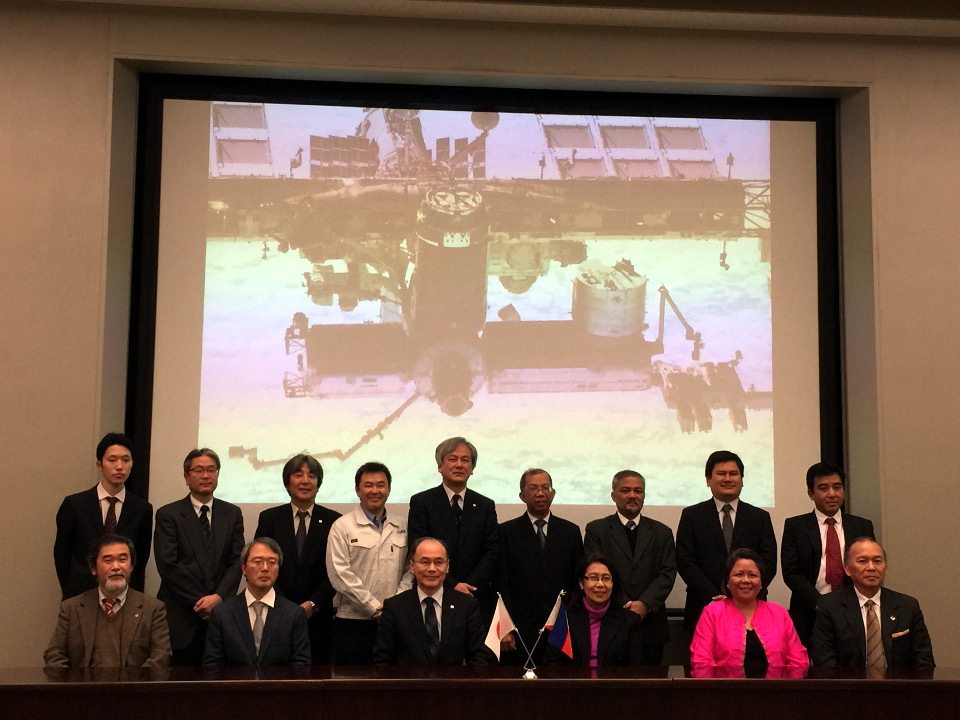 During the ceremonies commemorating the handover of the Diwata-1, DOST Undersecretary Rowena Guevara, Ph.D. underscored that the Philippines’ first-ever Filipino-designed and built microsatellite is the product of DOST’s commitment to develop technological self-reliance through home-grown Filipino talent and in close collaboration with Japanese universities.
During the ceremonies commemorating the handover of the Diwata-1, DOST Undersecretary Rowena Guevara, Ph.D. underscored that the Philippines’ first-ever Filipino-designed and built microsatellite is the product of DOST’s commitment to develop technological self-reliance through home-grown Filipino talent and in close collaboration with Japanese universities.
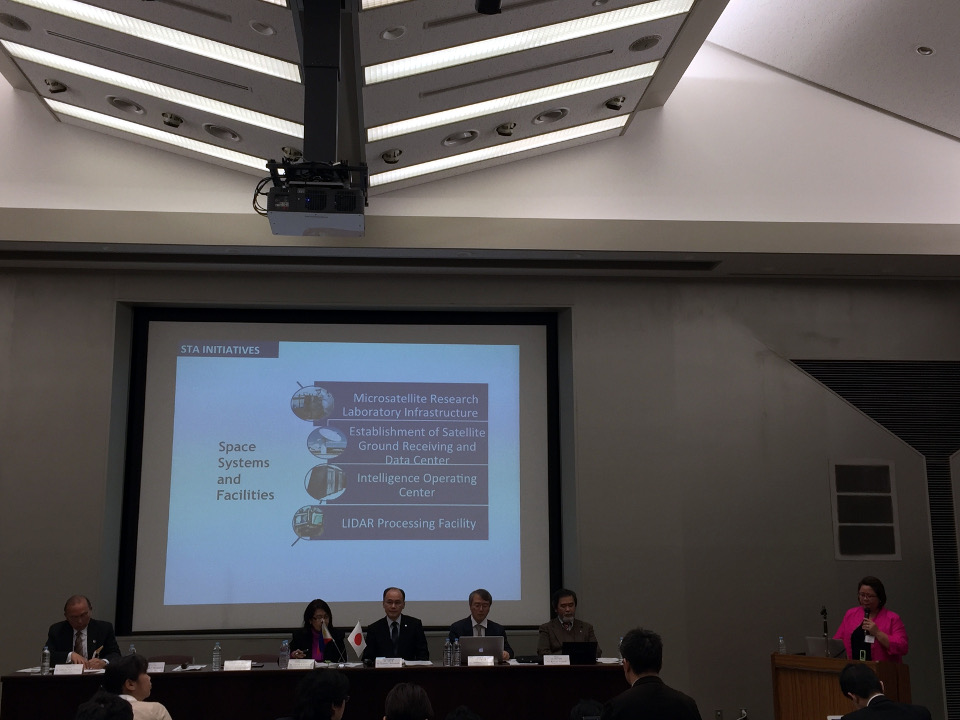 Once the Diwata-1 is launched into space and fully operational, the Philippine government would no longer have to resort to using data of commercial satellites and would be able to use and control its own satellite technology for the Philippines’ own purposes, such as climate change adaptation and disaster risk reduction. The Undersecretary added that the launch of the country’s first microsatellite will soon be followed by the establishment of a ground receiving station, and ultimately, the creation of the National Space Agency, which would implement future space technologies to address the Philippines’ developmental challenges.
Once the Diwata-1 is launched into space and fully operational, the Philippine government would no longer have to resort to using data of commercial satellites and would be able to use and control its own satellite technology for the Philippines’ own purposes, such as climate change adaptation and disaster risk reduction. The Undersecretary added that the launch of the country’s first microsatellite will soon be followed by the establishment of a ground receiving station, and ultimately, the creation of the National Space Agency, which would implement future space technologies to address the Philippines’ developmental challenges.
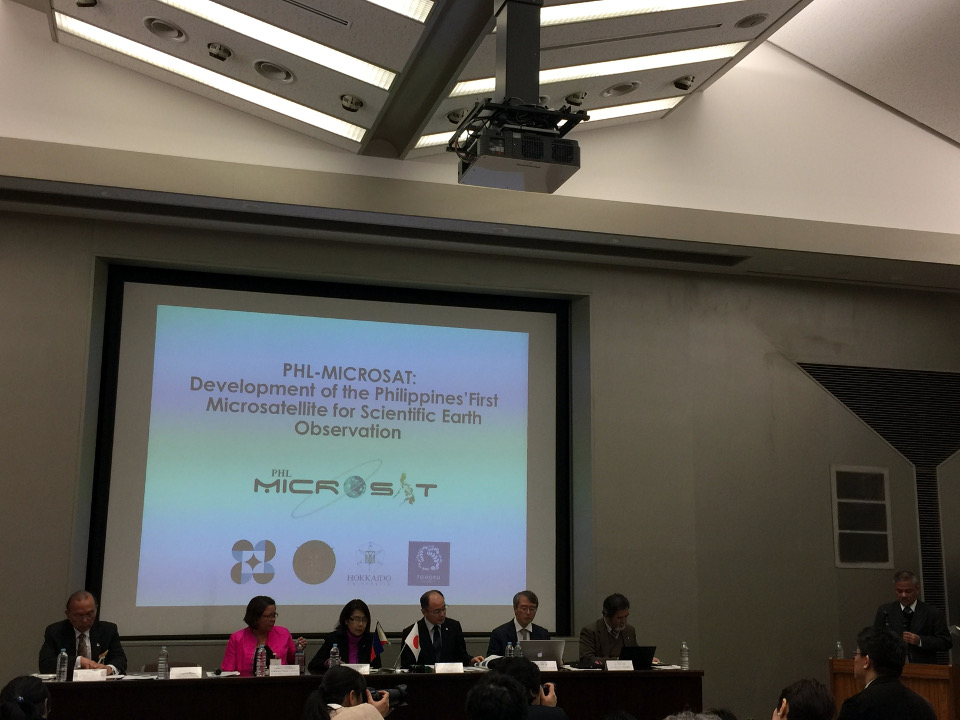 Microsat Project Leader and U.P. Engineering Professor Joel Marciano, Ph.D. highlighted that the Philippines, as a country rich in natural resources with highly skilled human capital and high vulnerability to climate-induced disasters, is uniquely positioned to develop space technologies such as microsatellites and to fully benefit from its application in various areas, such as agricultural productivity and environmental protection. Dr. Marciano stressed that the Diwata-1 will be able to provide data gathered from intensified earth observation to the Philippine government in real time and on-demand. This would significantly enhance the government’s ability to craft more accurate policy responses to climate change and to respond more rapidly and effectively to typhoons, floods, landslides, and other calamities.
Microsat Project Leader and U.P. Engineering Professor Joel Marciano, Ph.D. highlighted that the Philippines, as a country rich in natural resources with highly skilled human capital and high vulnerability to climate-induced disasters, is uniquely positioned to develop space technologies such as microsatellites and to fully benefit from its application in various areas, such as agricultural productivity and environmental protection. Dr. Marciano stressed that the Diwata-1 will be able to provide data gathered from intensified earth observation to the Philippine government in real time and on-demand. This would significantly enhance the government’s ability to craft more accurate policy responses to climate change and to respond more rapidly and effectively to typhoons, floods, landslides, and other calamities.
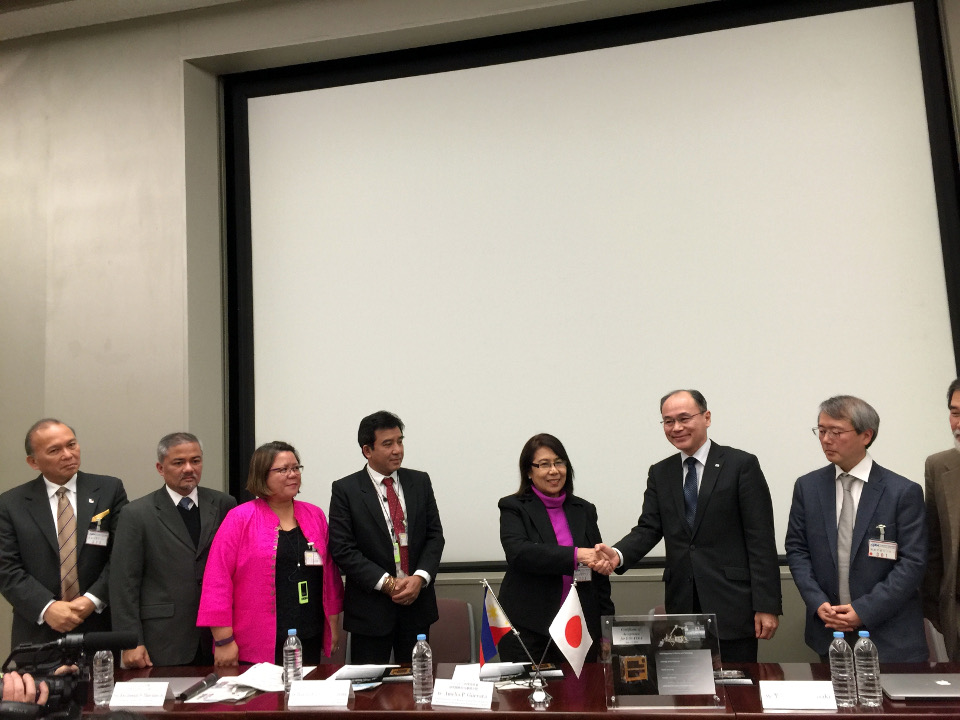 DOST Undersecretary Amelia Guevara, Ph.D. lauded the nine (9) Filipino engineers and graduate researchers from U.P., who worked closely and in a hands-on capacity with other experts from the Hokkaido and Tohoku Universities to complete the microsatellite within a remarkably short period of one (1) year, which is tangible proof of the skill-level, resourcefulness, and global talent of Filipino scientists.
DOST Undersecretary Amelia Guevara, Ph.D. lauded the nine (9) Filipino engineers and graduate researchers from U.P., who worked closely and in a hands-on capacity with other experts from the Hokkaido and Tohoku Universities to complete the microsatellite within a remarkably short period of one (1) year, which is tangible proof of the skill-level, resourcefulness, and global talent of Filipino scientists.
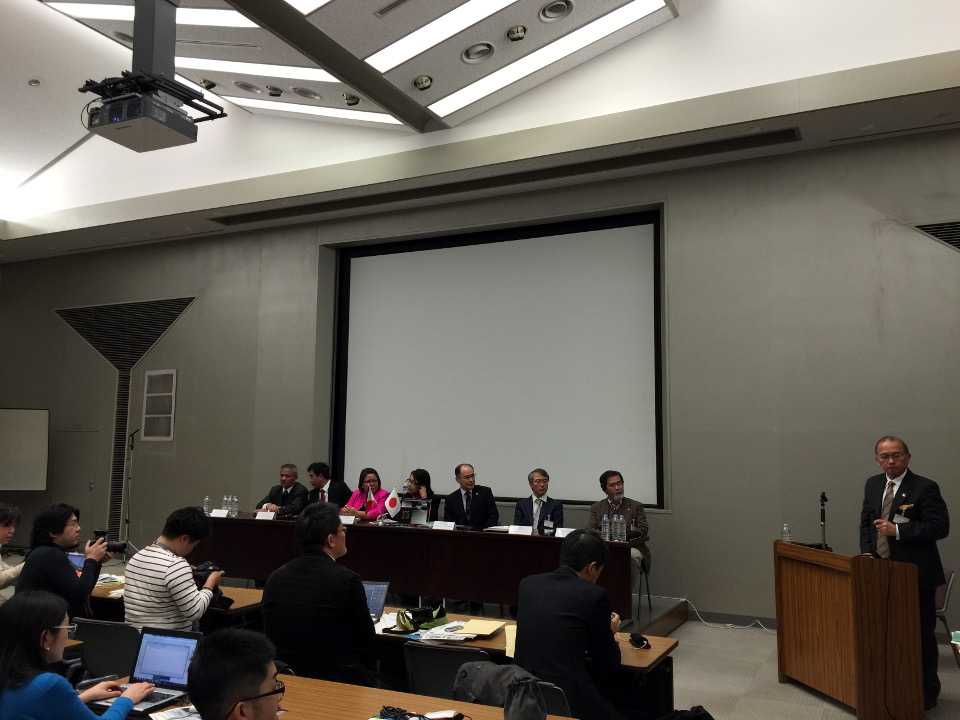 In his closing remarks at the press conference, Deputy Chief of Mission Gilberto G.B. Asuque of the Philippine Embassy Tokyo commended the DOST and UP Microsat Team for achieving a significant milestone in the nation’s history, as the first Filipino-made microsatellite represents the apex of the Philippines’ scientific development to date.
In his closing remarks at the press conference, Deputy Chief of Mission Gilberto G.B. Asuque of the Philippine Embassy Tokyo commended the DOST and UP Microsat Team for achieving a significant milestone in the nation’s history, as the first Filipino-made microsatellite represents the apex of the Philippines’ scientific development to date.
DCM Asuque cited the close scientific cooperation between the governments, universities, and scientists of the Philippines and Japan in successfully building the Diwata-1 which exemplifies the close partnership between the two countries, at a time when bilateral relations have been at its peak since the establishment of diplomatic ties in 1956. He stressed that the microsatellite will not only improve the government’s ability to combat the disastrous effects of climate change, but will also significantly enhance the Philippines’ ability to closely monitor its territorial borders and maritime domain.
 The Diwata-1 will be part of a payload of different cargoes that will be launched at Cape Canaveral and offloaded at the International Space Station (ISS) and launched into outer space sometime in April 2016 through the Japan-designed “Kibo” satellite deployment system in the ISS.
The Diwata-1 will be part of a payload of different cargoes that will be launched at Cape Canaveral and offloaded at the International Space Station (ISS) and launched into outer space sometime in April 2016 through the Japan-designed “Kibo” satellite deployment system in the ISS.
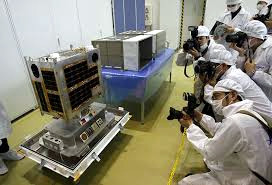 The completion and 2016 launch of the Diwata-1 will be followed by the full operation of the Satellite Ground Receiving and Data Center in the Philippines and the completion and launch of a second microsatellite, Diwata-2. END
The completion and 2016 launch of the Diwata-1 will be followed by the full operation of the Satellite Ground Receiving and Data Center in the Philippines and the completion and launch of a second microsatellite, Diwata-2. END












